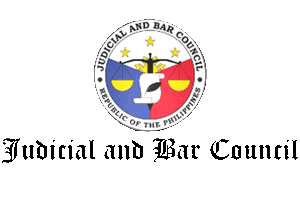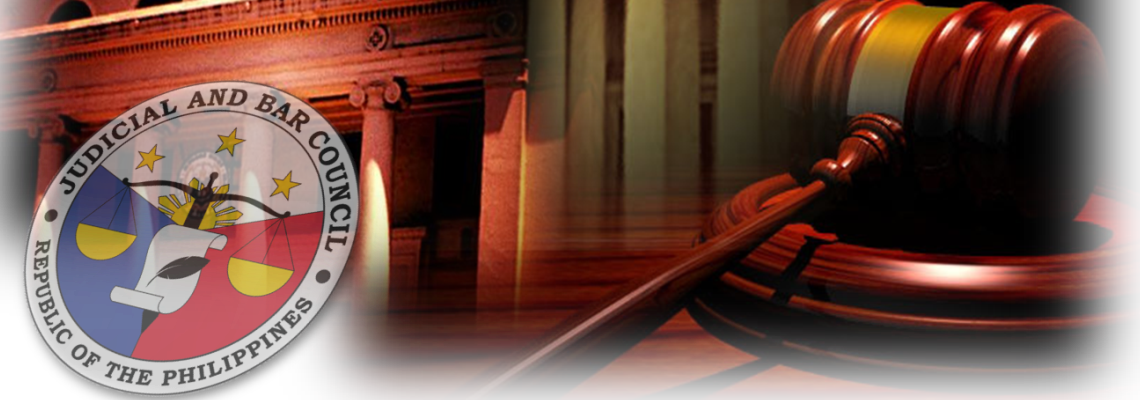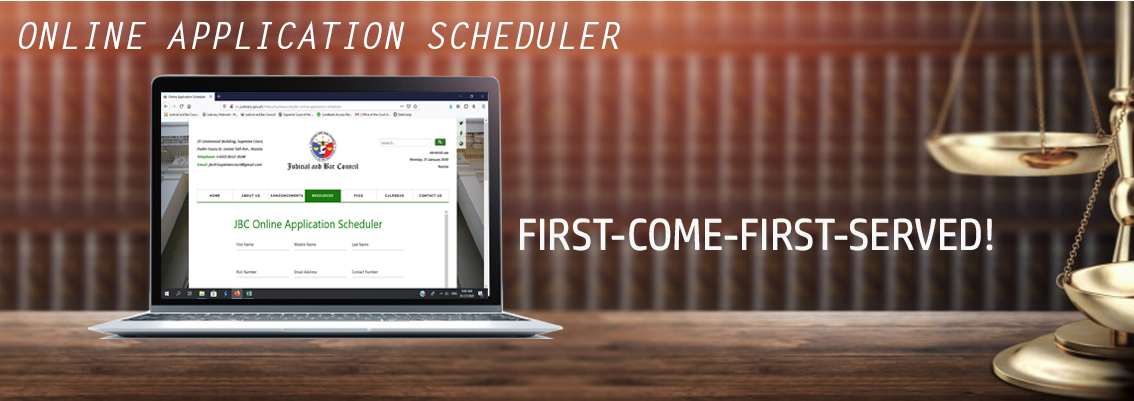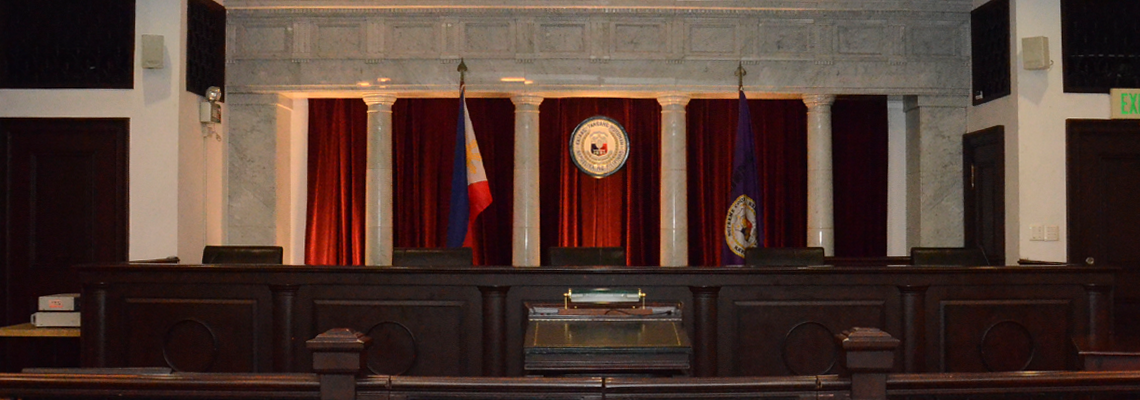Background of the creation of the Judicial and Bar Council
Before the 1987 Constitution, a good number of citizens, bar associations and civic organizations, and mass media, especially, expressed dissatisfaction over the nation’s system of dispensing justice with a vehemence that reached new heights, considering, (1) a persistently staggering backlog; (2) lazy, dishonest and incompetent members of the judiciary; (3) cumbersome procedures; and (4) dilatory tactics of litigants and lawyers.
Apart from quantitative problems, there was a widespread disapprobation of the quality of the justice dispensed. A committee on judicial reorganization, heretofore organized by previous administrations, warned that “these are problems both grave and pressing that call for remedial measures.” The felt necessities of the time, to borrow a phrase from Justice Holmes, “admit of no delay, for if no step is taken and at the earliest opportunity, it is not too much to say that the people’s faith in the administration of justice will be shaken.”
“The rectitude and the fairness in the way the courts operate must be manifest to the members of the community, particularly to those whose interests are affected by the exercise of their functions.”
Actually, the furor boils down to this: PROPER JUDICIAL SELECTION.
The effectiveness of any judicial organization, no matter how it is planned and structured will suffer if it is unable to get HONEST, DEDICATED and COMPETENT judges.
xxx xxx xxx
The Constitution and the law then had not improved the method by which justices, judges and prosecutors were selected or promoted and were not encouraged to maintain the quality of their work. The law functioned negatively, not positively, that is, it was designed to keep unqualified misfits out, not to bring the best and the brightest lawyers into the judiciary.
The bar then was fragmented and, for that reason, it could hardly contribute as much as it should to improve the judicial system, to raise the quality of the profession and to protect the public and itself from abusive or corrupt judges and irresponsible or dishonest lawyers.
All appointments to the bench, then, were made by the President, subject to confirmation by the Commission on Appointments. As a rule, the Commission on Appointments, in deference to the President, confirms every appointment provided that (a) the nominee possesses the qualifications prescribed by the law; (b) no serious charges are filed impeaching his integrity; and (c) no member of Congress expresses a strong objection to the appointment.
The President generally selects the nominees from a list of candidates prepared under the supervision of the Secretary of Justice. The list includes those within the Department of Justice whom the Secretary believes would make good judges, as well as those without the Department who are proposed by leaders of the political party to which the President belongs or by other persons who possess a strong influence over the President or the Secretary. Before inclusion in the list, the candidates undergo such screening as the Secretary may deem necessary. Occasionally, the President or the Secretary consults with the Chief Justice and members of the Supreme Court, the Presiding Justice and Justices of the Court of Appeals and leading members of the bar with respect to certain candidates, especially those who aspire for appointment to the Court of Appeals or the Supreme Court.
The final list from which the President makes his choice is not published.
The Presidents nominations are not published by the Commission on Appointments.
Consequently, this method of appointing and promoting judges proved to be one of the major reasons why our people do not trust lower Courts as much as they do the Supreme Court. The people know that, as a general rule, a man can reach the Supreme Court only after years of service in the lower courts or of practice at the bar which has earned him a national reputation. On the other hand, they suspect that judges receive their appointments and promotions more through political influence than merit. The sight of most of the nominees milling around Congress, anxiously following up their nominations during the closing days of the session of the Commission on Appointments, serves to strengthen the suspicion. Lack of publicity concerning the nominees before their nomination or confirmation adds fuel to the fires of suspicion.
To remedy the situation, a bill that would require that nominees to the trial bench must have first qualified in a competitive examination given by the Supreme Court was filed in the Senate. Chief Justice Concepcion advocated a similar remedy, extending the requirement of prior competitive examinations to appointments to the Court of Appeals. The bill failed to pass.
Indeed, such a requirement would have minimized political influence and would have infused in the nominee a sense of having earned his nomination by his own merits. It would have served to enhance the independence of judges and to bolster public confidence in our system of justice.
At the time, however, this was not proven to be feasible. It imposed added work to the Supreme Court. Some lawyers who would make excellent judges would be reluctant to abandon their practice because of financial losses. Besides, they would be averse to the taking of an examination as though they would take the bar a second time.
Thus, it was thought at the time that a better method would be to limit the Presidents’ power of appointment to nominees proposed by a Judicial Nominating Commission, composed of judges, lawyers and laymen. The Commission would be charged with the duty of conducting careful checks into the background of all nominees, giving full publicity to the identity of the candidates and seeking out the best available talent to fill the vacancies from the lowest to the highest in the judiciary.
THE 1987 PHILIPPINE CONSTITUTION
Reacting to the foregoing concerns, the Constitutional Commission enacted the 1987 Philippine Constitution and provided that:
SEC. 8 (1) A Judicial and Bar Council is hereby created under the supervision of the Supreme Court composed of the Chief Justice as ex officio Chairman, the Secretary of Justice, and a representative of the Congress as ex officio Members, a representative of the Integrated Bar, a professor of law, a retired Member of the Supreme Court, and a representative of the private sector.
(2) The regular members of the Council shall be appointed by the President for a term of four years with the consent of the Commission on Appointments. Of the Members first appointed, the representative of the Integrated Bar shall serve for four years, the professor of law for three years, the retired justice for two years, and the representative of the private sector for one year.
(3) The Clerk of the Supreme Court shall be the Secretary ex officio of the Council and shall keep a record of its proceedings.
(4) The regular Members of the Council shall receive such emoluments as may be determined by the Supreme Court. The Supreme Court shall provide in its annual budget the appropriations for the Council.
(5) The Council shall have the principal function of recommending appointees to the Judiciary. It may exercise such other functions and duties as the Supreme Court may assign to it.
SEC. 9. The Members of the Supreme Court and judges of lower courts shall be appointed by the President from a list of at least three nominees prepared by the Judicial and Bar Council for every vacancy. Such appointments need no confirmation.
For the lower courts, the President shall issue the appointments within ninety days from the submission of the list.
Thus, it has been mandated that the Judicial and Bar Council shall have the principal function of nominating appointments to the Judiciary. The Justices of the Supreme Court, the Court of Appeals, the Sandiganbayan and the Judges of the lower courts, and the Ombudsman and his Deputies shall, in addition to other requirements, be appointed by the President of the Philippines from a list of at least three nominees proposed by the Judicial and Bar Council for every vacancy. Only those nominated by the Council in a list to be officially transmitted to the President may be appointed by the latter as Justices or Judges or as Ombudsman or Deputy Ombudsman.
RATIONALE FOR THE JUDICIAL & BAR COUNCIL
According to CON COM President, Justice Cecilia Muñoz-Palma, the JBC was the “baby” of Chief Justice Roberto Concepcion. The late Chief Justice justified its creation in this manner:
“The Judicial and Bar Council is no doubt an innovation. But, it is an innovation made in response to the public clamor in favor of eliminating politics from the appointment of judges.”
“At present, there will be about 2,200 positions of judges, excluding those of the Supreme Court, to be filled. We feel that neither the President alone nor the Commission on Appointments would have the time and the means necessary to study the background of everyone of the candidates for appointment to the various courts in the Philippines, especially considering that we have accepted this morning the amendment to the effect that no person shall be qualified unless he has proven a high sense of morality and probity.” (Record, Vol. 2, p. 487)
The very rationale of the JBC’s creation and existence is itself the main argument for its continued existence – THE NECESSITY OF ATTAINING AND PRESERVING THE INDEPENDENCE OF THE JUDICIARY.
(Excerpts taken from the speech of Hon. Justice Regino C. Hermosisima Jr., JBC Regular Member, during the JBC Strategic and Operations Planning Workshop on March 10, 2006 at Pan Pacific Hotel, Manila.)




